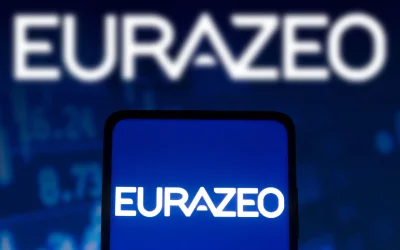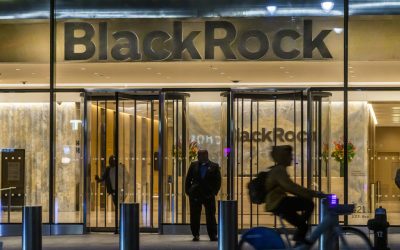Deutsche Bank rejected a request by the European Central Bank to suspend key parts of its leveraged finance operations over concerns that Germany’s largest lender was not properly monitoring risk in that area, according to people familiar with the matter.
The intervention of Europe’s top banking regulator was triggered by a routine audit of what has long been seen as one of Deutsche’s most successful business areas. The lender is one of Europe’s largest players in leveraged finance — the practice of lending to private equity firms and other buyers of corporate assets.
In a letter to Deutsche this summer, the ECB warned that the lender’s internal risk management framework for highly leveraged transactions was “incomplete”, and gave the bank until the end of September to fix the shortcomings. The Frankfurt-based regulator also “encouraged” Deutsche to suspend high-risk transactions until the ECB had approved its new risk framework.
Deutsche, however, told the ECB that it was “impractical” to follow its request, according to people familiar with the matter. It was able to avoid having to suspend parts of its leveraged finance business because the regulator’s suggestion to do so was non-binding. Instead, Deutsche tightened its internal approval process and currently flags every single high-risk leveraged finance transaction to the ECB.
Deutsche said in a statement: “Leveraged loans are an important business for the economy and many banks, including Deutsche Bank. We have a strong track record in the business and we follow a prudent risk management approach in line with regulatory requirements. As a matter of principle we do not comment on dialogue with our regulators.”
The ECB declined to comment.
The regulator’s intervention increases the pressure on Deutsche chief executive Christian Sewing, who has repeatedly pledged to tighten internal controls and put an end to its long history of compliance and governance shortcomings.
A temporary suspension of leveraged finance transactions would have been painful for Deutsche. In the first nine months of this year, the Frankfurt-based lender controlled 8.6 per cent of the leveraged finance market in Europe, and 3.7 per cent of the much bigger US market, according to data from Dealogic.
Leveraged finance is part of the investment bank’s debt origination business, which generated €1.2bn of revenues in the first nine months of 2020 and was up 43 per cent year-on-year.
In recent years the ECB has become increasingly concerned about the risks linked to leveraged finance transactions as tough competition among banks lead to a softening of underwriting standards and increasing leverage.
At the heart of the clash between Deutsche and the ECB is the question of how to define “high levels” of leverage. The ECB defines it as all deals where total debt including undrawn credit lines exceeds six times earnings before interest, tax, depreciation and amortisation.
Such transactions “should remain exceptional and [ . . .] should be duly justified” as such a high leverage for most industries “raises concerns”, the ECB said in its 2017 guidance.
Deutsche’s own definition of high-leverage transactions was less strict because it excluded undrawn credit lines — an approach that senior Deutsche executives said was in line with industry practice.
As a consequence, many of Deutsche’s leveraged finance deals over the past three years were not subject to the tighter internal approval and monitoring procedures that the ECB expects for high-leverage transactions.
Since receiving the ECB’s letter, Deutsche has adjusted its internal risk framework to bring it in line with the ECB guidelines and the regulator is currently reviewing the bank’s revised risk framework, according to people with first hand knowledge.
Last year, two botched leveraged finance deals at Deutsche highlighted the risks that come with those lucrative deals. The German lender suffered multimillion-dollar losses after it struggled to offload two risky corporate loans that it agreed to underwrite for private equity clients. One was to fund the buyout of the Smart & Final grocery chain by Apollo Global Management and the other to spin out part of Evonik, a German speciality chemicals maker.
The coronavirus pandemic has further increased regulatory concerns as the rising risk of corporate defaults escalates the risks for banks with large credit exposure in that area. In May, the ECB warned that global markets for leveraged loans “are currently facing headwinds not seen since the financial crisis of 2008-09”.
Source: Financial Times
Can’t stop reading? Read more
Fund Friday: Top fundraising news in private equity
Fund Friday: Top fundraising news in private equity Eurazeo has secured €480m, or roughly $567m,...
Blackstone secures regulatory approval to buy stake in India’s Federal Bank
Blackstone secures regulatory approval to buy stake in India’s Federal Bank Blackstone has...
BlackRock folds Aladdin deeper into private markets with unified data platform
BlackRock folds Aladdin deeper into private markets with unified data platform BlackRock is...




